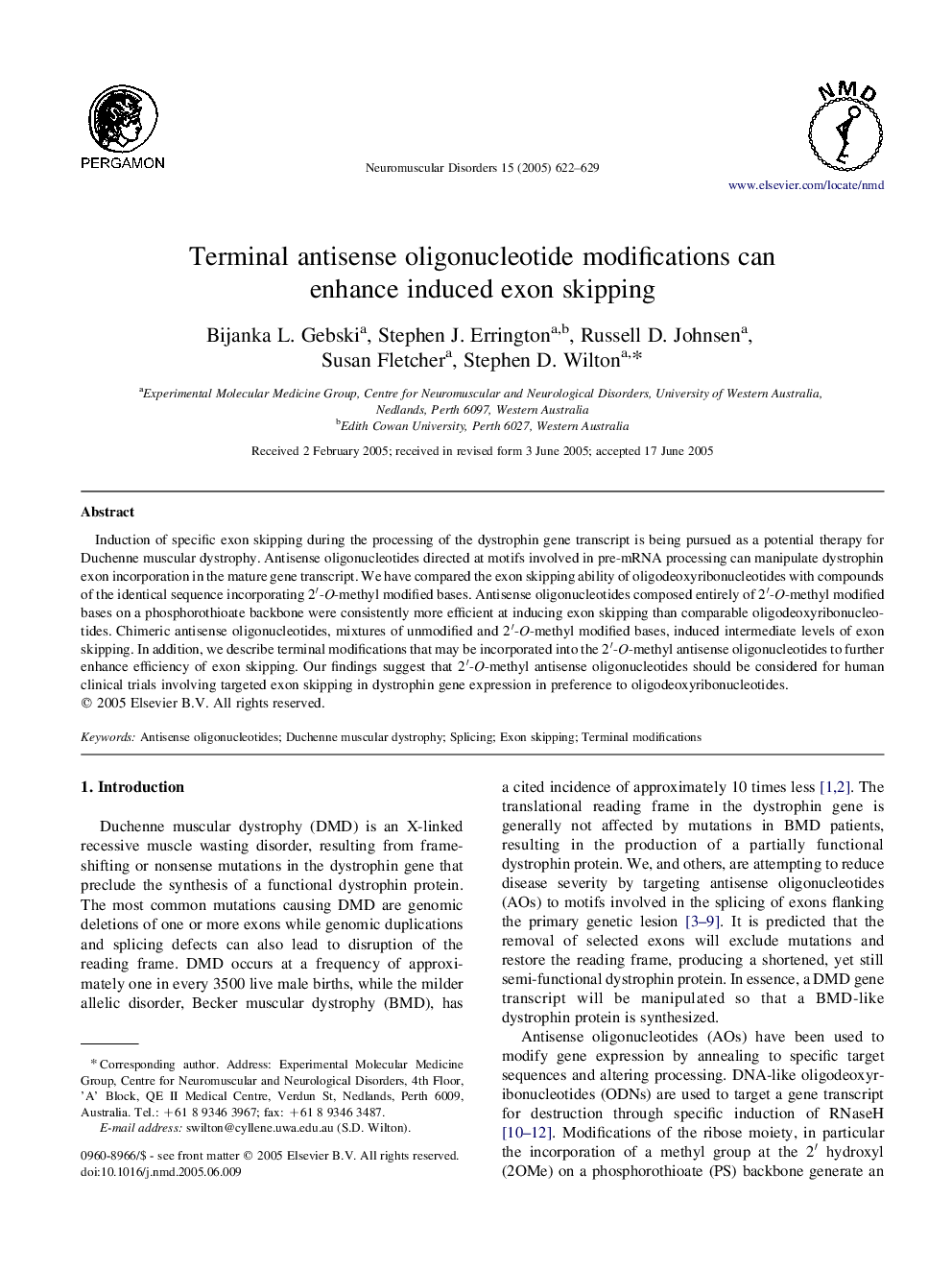| Article ID | Journal | Published Year | Pages | File Type |
|---|---|---|---|---|
| 9200485 | Neuromuscular Disorders | 2005 | 8 Pages |
Abstract
Induction of specific exon skipping during the processing of the dystrophin gene transcript is being pursued as a potential therapy for Duchenne muscular dystrophy. Antisense oligonucleotides directed at motifs involved in pre-mRNA processing can manipulate dystrophin exon incorporation in the mature gene transcript. We have compared the exon skipping ability of oligodeoxyribonucleotides with compounds of the identical sequence incorporating 2â²-O-methyl modified bases. Antisense oligonucleotides composed entirely of 2â²-O-methyl modified bases on a phosphorothioate backbone were consistently more efficient at inducing exon skipping than comparable oligodeoxyribonucleotides. Chimeric antisense oligonucleotides, mixtures of unmodified and 2â²-O-methyl modified bases, induced intermediate levels of exon skipping. In addition, we describe terminal modifications that may be incorporated into the 2â²-O-methyl antisense oligonucleotides to further enhance efficiency of exon skipping. Our findings suggest that 2â²-O-methyl antisense oligonucleotides should be considered for human clinical trials involving targeted exon skipping in dystrophin gene expression in preference to oligodeoxyribonucleotides.
Related Topics
Life Sciences
Neuroscience
Developmental Neuroscience
Authors
Bijanka L. Gebski, Stephen J. Errington, Russell D. Johnsen, Susan Fletcher, Stephen D. Wilton,
